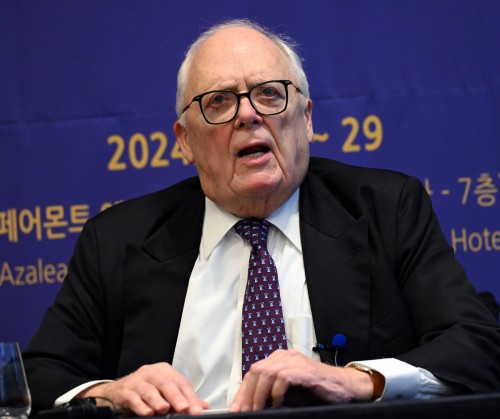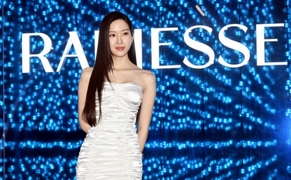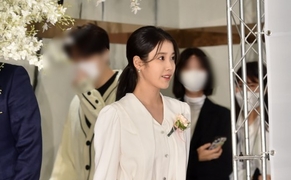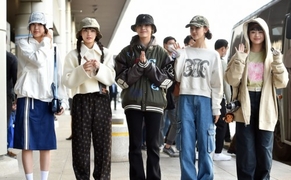 |
| Edwin Feulner, president of the U.S. think tank The Heritage Foundation Asia Research Center, speaks during a press conference at the Fairmont Ambassador Hotel in Seoul on Sept. 28, 2024./ Photographed by Song Eui-joo |
AsiaToday reporter Han Dae-eui
“As strong democratic countries, the three countries should continue to be true allies beyond their long-standing historical differences,” said Edwin Feulner, president of the U.S. think tank The Heritage Foundation Asia Research Center on the South Korea-U.S.-Japan relationship at the press conference held in Seoul on Saturday. The remark came when he was asked about the future focus of The Heritage Foundation on the unification of the two Koreas. “We need to remind the American people that the United States is the world’s most powerful economy and key currency that serves as a free and open society while being a powerful partner that extends not only to South Korea, Japan and Southeast Asia, but also to Australia and New Zealand,” he said.
In this regard, Feulner highly praised the Trump administration’s definition of close cooperation between the U.S., India, Japan, and Australia. He said that South Korea is in a very good position. “(South Korea) is a G20 member state and a country that produced UN Secretary-General Ban Ki-moon. I believe that South Korea is in a position to promote freedom and individual rights through diplomatic influence and status as a successfully developed democratic country,” he said. “These things in particular affect North Korea. North Korean people may feel that their current situation is not good while looking at South Korea. At a recent major meeting, I heard that North Koreans were dissatisfied with the poor situation in North Korea,” he added.
On the South Korean President Yoon Suk-yeol’s “August 15 Unification Doctrine” mentioned in his National Liberation Day speech on August 15, Feulner said, “I read Yoon’s address with great interest. I was impressed by what he said about how unification can be achieved and in what direction (unification) should go.”
“I applaud (Yoon’s) candid plan for unification. I hope that this view will be widely shared among the Korean people,” he said. “It is very important to pursue peaceful unification and to encourage it to all classes of Korean society. It seems that President Yoon is trying to emphasize and encourage this message to his people.”
#Edwin Feulner
Copyright by Asiatoday
Most Read
-
1
-
2
-
3
-
4
-
5
-
6
-
7





















